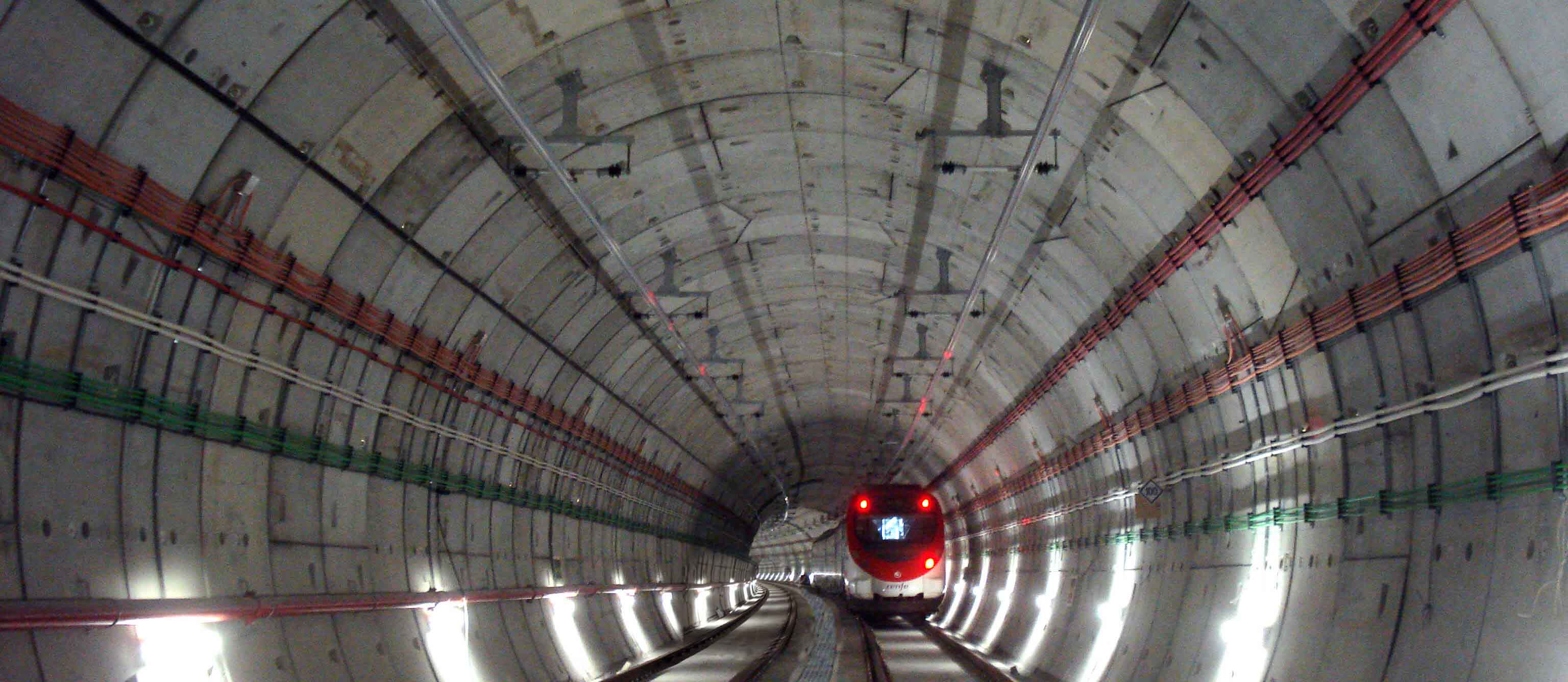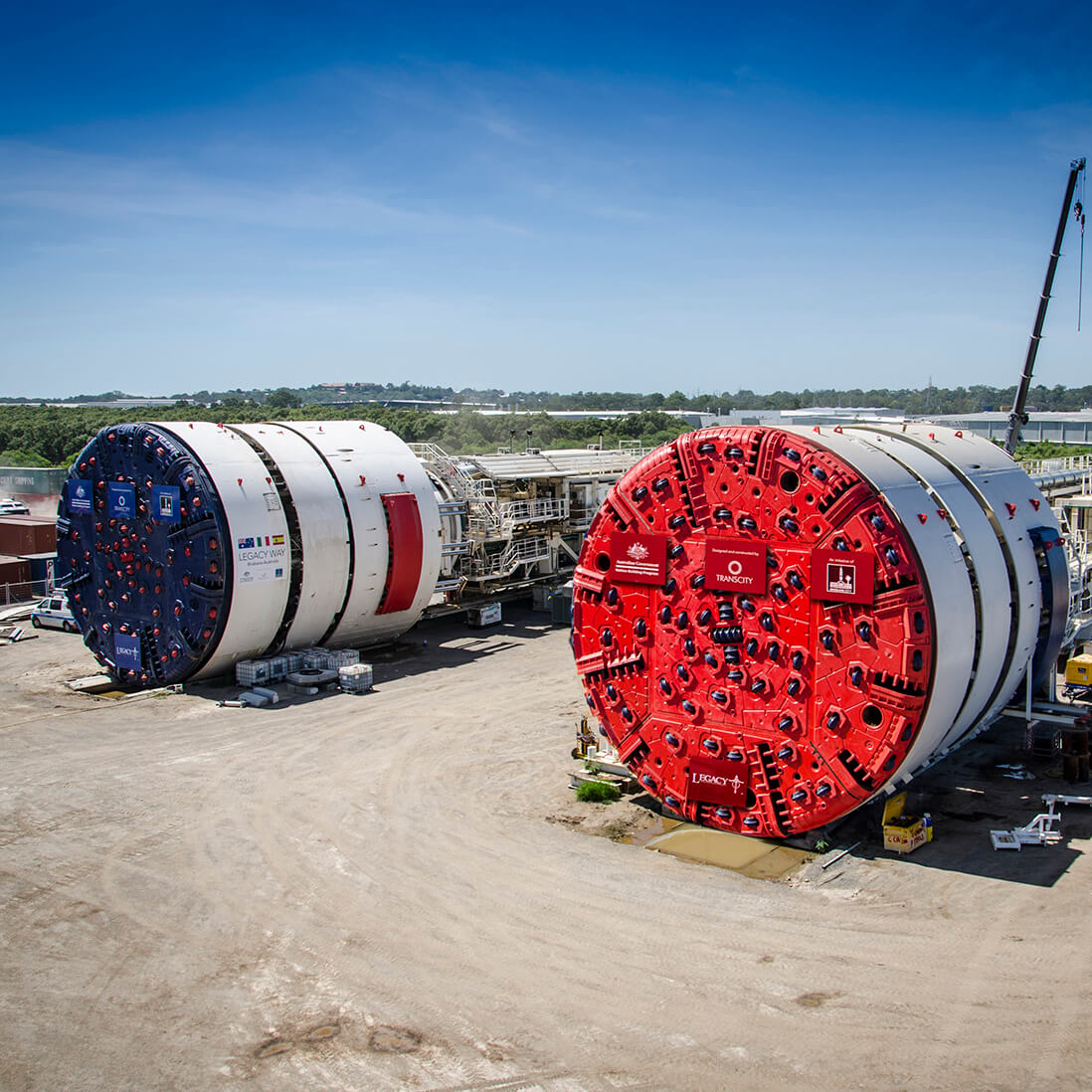Construction of tunnels
ACCIONA has designed and built more than 600 km of underground railway, road and rail tunnels in which its innovative methods have made it a worldwide reference not only for the construction of these underground mega-infrastructures, but also for the machinery that makes them possible: tunnel boring machines.
Supported by its leading role in tunnelling equipment, its extensive research in geotechnics and the sustainability-based approach that permeates its every project, ACCIONA has carried out some of the world's most important tunnelling projects, such as the railway tunnels for the Follo Line in Norway and the metro system in Quito, Ecuador.
Areas of activity
Featured tunnel projects
See all tunnel projectsTunnel boring machines: equipment to build the future of mobility
Tunnel boring machines have been established as the safest method of excavation in terms of technological advances in geotechnics, improved working conditions inside tunnels and the use of ventilation systems, among other aspects.
ACCIONA has broken several records in the field of tunnel boring machine productivity, and has helped to put this machine at the heart of tunnel engineering techniques. In its tunnel construction projects, the company uses some of the largest TBMs on the planet. These can be up to 15 metres in diameter and around 100 metres in length, and are adapted according to the terrain in which they operate.

In addition, ACCIONA has also designed and patented a laser-guidance solution for tunnel construction without the need for heavy machinery. This innovation increases drilling accuracy by more than 60 % and has saved around 30 MWh of energy consumption.
In the search for sustainable and efficient solutions for transport projects, the company incorporates the circular economy as a norm in its tunnel construction projects and other underground infrastructures. During the construction of the Padornelo tunnel in Zamora, Spain, it recycled more than 86,000 tonnes of granite. In addition, it has introduced ground-penetrating radar technology in underground projects such as the Quito metro to reduce time and save process execution costs.
ACCIONA has broken several world records with tunnel boring machines and has helped to place these machines at the centre of tunnel engineering.
ACCIONA's Tunnel Boring Machine Control Centre
ACCIONA has developed a Tunnel Boring Machine Control Centre, a pioneering remote storage and monitoring platform where it collects and analyses real-time data obtained by tunnel boring machines using Big Data techniques.
The system processes more than four million items of data per tunnel per day in real time, ranging from strength and rotational speed to rate of progress to fuel, lubricating grease and energy consumption.
ACCIONA incorporates up to 65,000 sensors in the TBMs, which report back on the work carried out once every 250 milliseconds. In a year, the system for a single machine collects about 45 terabytes with which our engineers simulate the advancement of the TBM in operation, perform predictive maintenance and determine operating and maintenance costs for tunnel construction projects.

You might be interested in...
At the forefront
Construction R&D
Discover our main lines of research for construction projects and major works. We design solutions to optimise construction processes, as well as new technologies and more efficient materials in projects that reduce the potential impact on the natural environment.
Our priority
HEALTH AND SAFETY AT WORK
ACCIONA's permanent concern and commitment to the health and safety of our people and partners is a differentiating element and an indispensable requirement. We pursue the zero-incident objective through the most rigorous prevention measures in our transport projects and solutions.